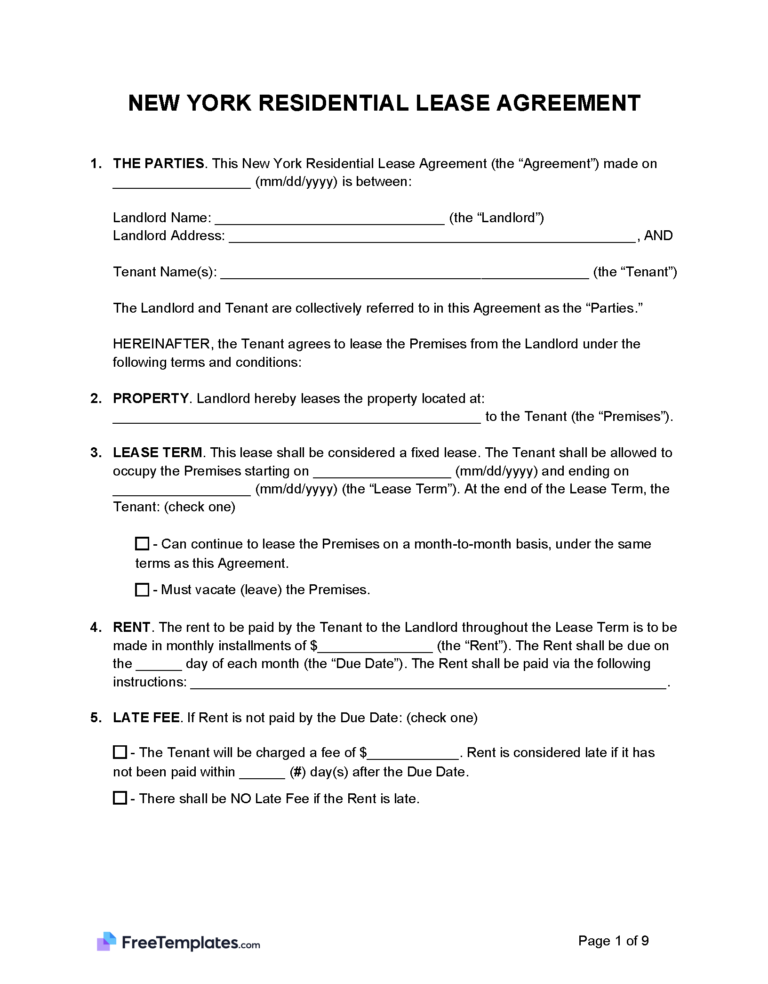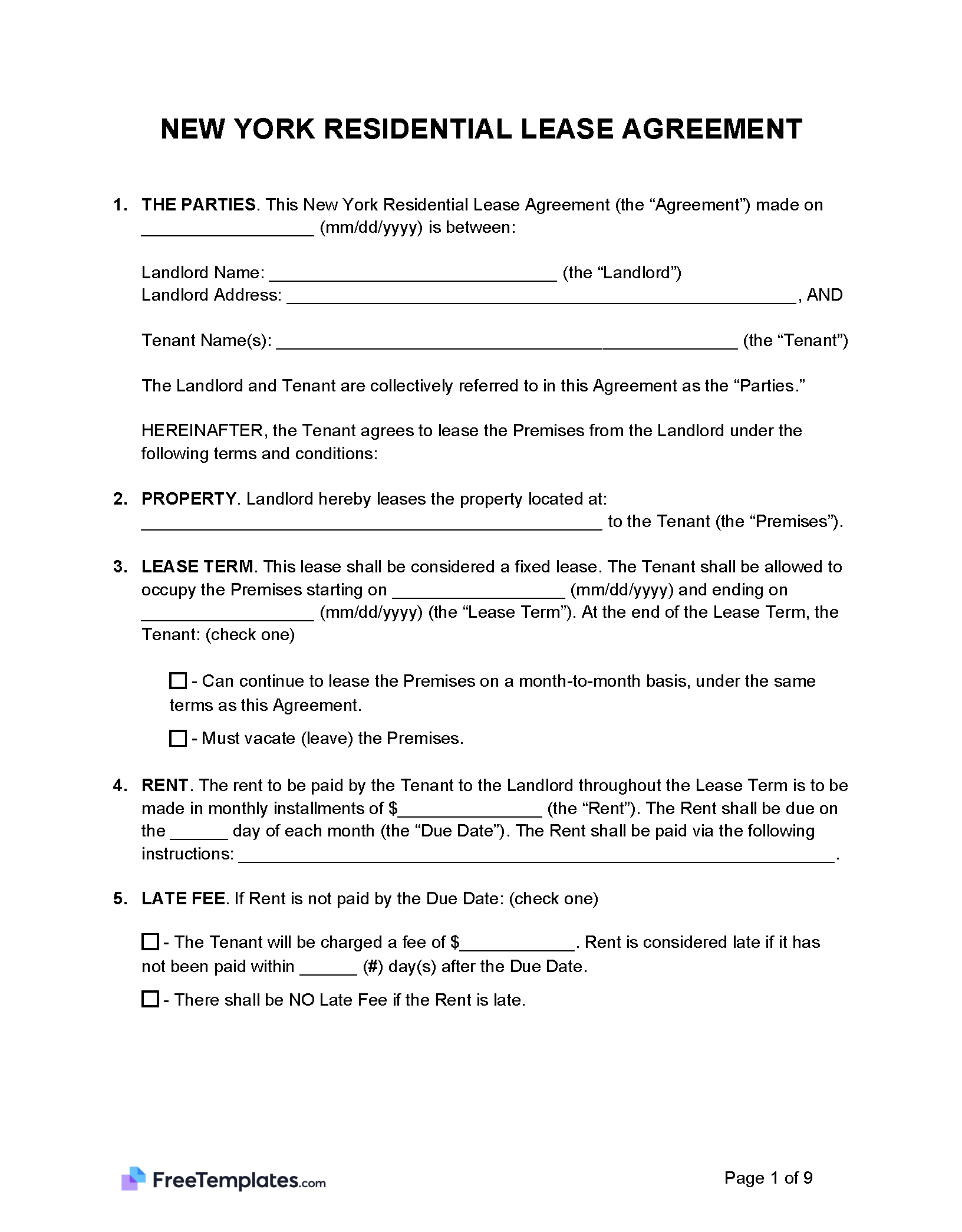By Type (6)
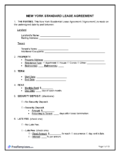 Standard Lease Agreement – A typical residential lease, usually 12 months long, that may renew at the end of its term. Standard Lease Agreement – A typical residential lease, usually 12 months long, that may renew at the end of its term.
|
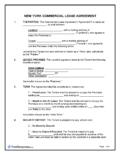 Commercial Lease Agreement – This contract is used when a business rents a property from a landlord. Commercial Lease Agreement – This contract is used when a business rents a property from a landlord.
|
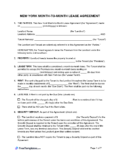 Month-to-Month Lease Agreement – An agreement between a renter and tenant that renews after each monthly payment. Month-to-Month Lease Agreement – An agreement between a renter and tenant that renews after each monthly payment.
|
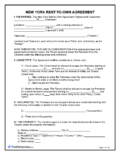 Rent-to-Own Agreement – A contract that lets the renter purchase the rented property from the landlord after the lease ends. Rent-to-Own Agreement – A contract that lets the renter purchase the rented property from the landlord after the lease ends.
|
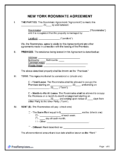 Roommate Agreement – This agreement is used when two or more renters share a leased space to outline each other’s responsibilities. Roommate Agreement – This agreement is used when two or more renters share a leased space to outline each other’s responsibilities.
|
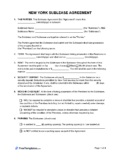 Sublease Agreement – This contract lets a renter re-rent their leased space to another party with the landlord’s approval. Sublease Agreement – This contract lets a renter re-rent their leased space to another party with the landlord’s approval.
|
Disclosures (9)
Lead-Based Paint Disclosure – For any home built before 1978, this disclosure is mandatory and must be provided to a new tenant to outline the dangers that toxic lead paint can cause.
Allergen Hazards Disclosure – This required disclosure informs the tenants of possible allergens in the property regarding indoor health hazards such as mold, rats, mice, or cockroaches. The landlord must have the property inspected annually. (NYC Admin Code § 27-2017.1)
Bedbug Disclosure – A disclosure shall be given to any renter in New York stating the property’s previous 12-month history of bedbugs. (NYC Admin Code § 27–2018.1)
Copy of Signed Lease – (Conditional) – A signed copy of the lease agreement must be provided to any renter within 30 days of the start of the lease. (Tenants’ Rights Guide)
Flood History Disclose & Risk Notice – Landlords must disclose the flood history and any current flood risk to tenants and provide specific notice about flood insurance. (N.Y. Real Prop. Law § 231-B(1))
Security Deposit Receipt – In New York, a written security deposit receipt must be given to a renter stating the location and address of where the deposit is being held. (N.Y. Gen. Oblig. Law § 7-103)
Sprinkler Disclosure – The lease agreement must state if the rental property has a sprinkler system installed. (N.Y. Real Prop. Law § 231-A(1))
Stove Knob Covers – (NYC Only) (Conditional) – By request, a landlord must provide stove knob covers to any renter with children under the age of six. (NYC Admin Code § 27-2046.4(a))
Window Guard Disclosure – (NYC Only) – If a child under the age of 11 is living in the rental unit, then the landlord is responsible for providing and installing a window guard. (NYC Admin. Code § 27–2043.1)
Security Deposit
Maximum Amount – In the state of New York, the maximum amount a landlord may charge for a security deposit is one month’s rent. (GOB Code § 7-108-1-a(a))
Returning to Tenant – The landlord must return the security deposit within 14 days of the lease end date. (GOB § 7-108(e))
Collecting Interest – For any property with more than 6 units, the landlord shall keep the security deposit in an interest-bearing account. The landlord may keep up to 1% of the profits while returning any other earnings to the tenants. (GOB § 7-103(2-a))
Itemized List Required – Any renter must receive a list showing the damages and deductions made to the rented property within 14 days of the lease end. (GOB § 7-108(e))
Separate Bank Account – The landlord must keep the security deposit funds separate from their personal account. (GOB § 7-103(1))
Landlord Access
General Access – While no specific laws state when or if a landlord may enter their rented property, it is advisable to give a notice to enter within 24 hours.
- New York City Only – The landlord is permitted access to the property if they give a 24-hour notice to address any code infractions or violations and at least 1-week notice for any repairs or fixes. (NYC Admin. Code § 25-101(a)(2))
Emergency Access – No laws address whether a landlord can enter their rented property in an emergency.
- New York City Only – In an emergency, the landlord may enter their rental property without notice. (NYC Admin. Code § 25-101(a)(3))
Paying Rent
Grace Period – There is a 5-day grace period for paying rent, after which the rent is considered late and subject to a penalty. (RPP § 238-A(2))
Maximum Late Fee – A late fee of 5% or $50, whichever is less, may be charged to any tenant that pays their rent late. (RPP § 238-A(2))
Returned Checks (NSF) – Any renter who writes a bad rent check may be charged a $20 fee. (GOB § 5-328(2)(a))
Withholding Rent – Tenants may subtract a portion of the rent payment from the monthly amount if the landlord fails to provide essential utilities to their renter. (RPP § 235-A(1))
Reasons for Eviction (4)
Non-Payment of Rent – If the tenant does not pay the rent on time, they may be served a 14-day notice to quit or pay. (RPA § 711.2(2))
Non-Compliance – Failure to comply with the original lease contract may result in the landlord serving a 3-day notice to quit or comply. (RPA § 753(4))
Lockouts – A court order is mandatory for any landlord attempting to lock out or prevent their renter from accessing the property. (RPA § 768(iii))
Leaving Before the End Date – If tenants abandon the property, they will still be responsible for paying the rent until the lease ends. The landlord must try to re-rent the unit to another new tenant. (RPP § 227-e)
